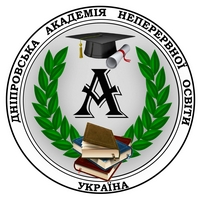EDUCATION IN THE ERA OF INFORMATION TECHNOLOGIES: HOW TO ENSURE PERSONALITY DEVELOPMENT?
Abstract
The article discusses the most important issues of the philosophy of education in the context of the development of information and communication technologies. In the process of analyzing the informatization of the educational process, it is concluded that this process cannot be limited to the formal side of using high technologies - they should differ not only in «scientific content», but also in «human dimension», implement not only the functions of computerization and medialization, but and the task of the process of intellectualization, aimed at the growth of the intellectual potential of the individual and society, to provide not only a technocratic, but also a humanitarian approach, in which information technology is considered an important part of human life, and the philosophy of education considers the issue of the existence of the education system in relation to the problems of culture, spirituality, civilizational development in general and global problems, the nature of the spiritual development of the individual. It is emphasized that a person can preserve a chance for existence in the context of interaction with super-powerful artificial intelligence if he or she retains the motivation for creativity and intellectual leadership, but the solution to this issue depends on overcoming the possible «future shock», his or her ability to adapt in the context of the «cybernetic revolution» and «technological singularity», when technological progress becomes unmanageable and irreversible. Recommendations are given on the restructuring of consciousness and value orientations of the worldview in order to preserve the social activity of a person, his or her desire for intellectual leadership. The problem of loss of non-verbal means of communication, expressiveness when conducting classes using informational and communicative means of information and distance learning is analyzed, attention is drawn to the need to use active learning methods. Since working with large amounts of information can lead to a loss of ability to concentrate and difficulties in thinking at an abstract level, the task of developing search activity, critical and problem thinking is considered. In order to bring a person out of the state of «immersion in virtual space», certain attempts are made to determine the practical direction of the educational process in the «knowledge society».
References
2. Дзьобань О. П., Жданенко С. Б. Інформаційна революція: соціоантропологічні та світоглядні трансформації. Інформація і право. 2021. № 4 (39). С. 22–34.
3. Дольська О. О. Філософія сучасного суспільства: навч.-метод. посіб. Харків: Підручник НТУ «ХПІ», 2012. 180 с.
4. Кіпенський А. В., Смоляга М. В. Логіка розвитку цивілізації: від інформаційного до інтелектуального суспільства. Дослідження з історії і філософії науки і техніки. 2023. Т. 32. № 1. С. 42–55.
5. Кудін В. А. Освіта – основа суспільного та соціального прогресу. Проблеми та перспективи формування національної гуманітарно-технічної еліти. Харків: НТУ «ХПІ», 2004. Вип. 3 (7). С. 66–77.
6. Курік М. Вплив інтернету на мозок. Український інститут екології людини, 2009. URL: http://www.vitamarg.com/article/vliynie/430-vliynie-interneta-namozg (дата звернення: 12.09.2024).
7. Мей К. Інформаційне суспільство. Скептичний погляд. Київ: К.І.С., 2004. 220 с.
8. Міщенко В. І. Духовна культура інформаційного суспільства: загроза знищення або шлях в майбутнє? Вісник Національнго університету «Харківський політехничний інститут». Філософія. Харків: НТУ «ХПІ». 2007. № 4. С. 18–27.
9. Проценко О. П., Васильєва Л. А. Культурні форми спілкування в самозбереженні людини та вдосконаленні людських відносин. Наукове пізнання: методологія та технологія. 2020. № 1 (45). С. 83–89.
10. Сергієнко Т. І. Інформаційні технології в освіті. Українські студії в європейському контексті. 2023. № 6. С. 121–126.
11. Cисоєва С. О. Модернізація системи освіти: особистісний вимір. Проблеми та перспективи формування національної гуманітарно-технічної еліти. Харків: НТУ «ХПІ», 2004. Вип. 3 (7). С. 52–66.
12. Сідак Л. М. Моральна руйнація особистості як основа духовної кризи суспільства. Проблеми та перспективи формування національної гуманітарно-технічної еліти. «Духовно-моральнісні основи та відповідальність особистості у долі людської цивілізації: матеріали Міжнар. наук.-практ. конф. (Харків. 16 лист. 2016 р.). Харків: НТУ «ХПІ», 2017. Вип. 47 (51). Т. 2. С. 245–251.
13. Сумченко С. В. Наукомістке майбутнє планетарної цивілізації: філософсько-методологічний аналіз: монографія. Суми: ФОП Цьома С. П., 2017. 200 с.
14. Фінін Г. І. Сучасні інформаційні технології у виховних практиках навчального закладу. Вісник Національного університету «Юридична академія України імені Ярослава Мудрого» 2018. № 1 (36). С. 43–51.
15. Холодна М. А. Психологія інтелекту: Парадокси дослідження. URL: http://ni.biz.ua/12/12_25/12_253230_psihologiya-intellekta-paradoksiissledovaniya.html (дата звернення: 14.10.2024)
16. Bauman Zygmunt. Liquid Modernity, Publisher, John Wiley & Sons, 2013. ISBN, 074565701X, 9780745657011. Length, 240 pages.
17. Bostrom, Nick Superintelligence: Paths, Dangers, Strategies, Oxford: Oxford University Press, 2014, xvi+324, ISBN 978-0-19-967811-2.
18. Global Education Futures. URL: https://futuref.org/educationfutures (дата звернення: 05.07.2024).
19. Heidegger Martin. Gelassenheit. Gunther Neske. Pfullingen, 1959. 281 р. URL: https://cameralabs.org/10512-otreshennost-martin-khajdegger-ovychislyayushchem-myshlenii-i-osmyslyayushchem-razdume (дата звернення: 11.10.2024).
20. Kaku M. Parallel worlds: a journey through creation, higher dimensions and the future of the cosmos. Рublished by doubleday a division of Random House, Inc. DOUBLEDAY New York, London, Toronto, Sydney: Auckland. 2004. 428 р.
21. Kastel’s M. Informatsionnaya epokha: ekonomika, obshchestvo i kul’tura. [Information Age: Economy, Society and Culture]. Perevod s angliyskogo pod nauch. red. O. I. Shkaratana. M.: GU VSHE, 2000. 608 p.
22. Kurzweil Ray. The Age of Intelligent Machines 1990 Cambridge, MA: MIT Press, ISBN 0-262-11121-7
23. Kurzweil Ray. The Age of Spiritual Machines: When Computers Exceed Human Intelligence, New York, NY: Penguin Books,1999. ISBN 0-670-88217-8
24. McLuhan М. The Gutenberg Galaxy. New York, 1962. 495 p.
25. Masuda Y. The Information Society as Post-Industrial Society. Wash., 1981. URL: http://books.google.ru/books?id=ynkmIxF1G3AC&printsec=frontcover&dq=Masuda,+Yoneji.+The+Information+Society:+as+Post-Industrial+Society (дата звернення: 14.10.2024).
26. Prigogine І. Isabelle Stengers Order out of chaos. Man's new dialogue with nature. Heinemann. London. 1984.
27. Prigogine I. The philosophy of instability. «Futures» August. 1989. P. 396–409.
28. Roszak Theodore. The cult of information: The folklore of computers a. the true art of thinking / Theodore Roszak. New York: Pantheon books, Cop. 1986. XII, 238 с. URL: https://translated.turbopages.org/proxy_u/en-ru.ru.37062706-63ad1a84-a104ff3e-74722d776562/https/archive.org/details/cultofinformatio00rosz (дата звернення: 14.10.2024).
29. Toffler E. Future Shock. USA, Random House. 1970. 505 p. ISBN 0-394-42586-3
30. Webster Frank. Theories of the Information Society (неопр.). First. Oxford: 1995. URL: https://archive.org/details/theoriesofinform0000webs (дата звернення: 14.10.2024).

 ISSN
ISSN  ISSN
ISSN 

